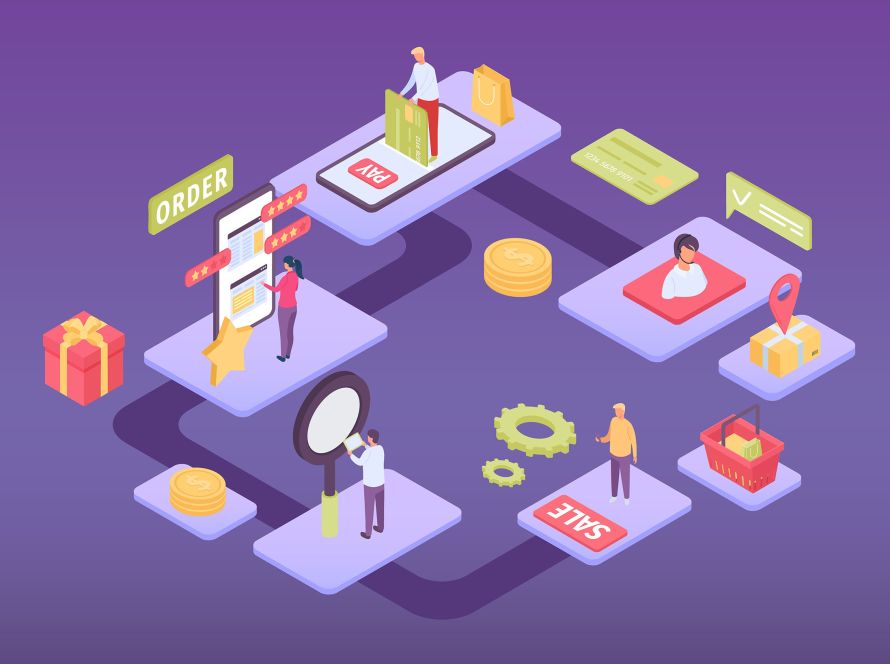Introduction to Location Master Data Management (MDM) in Retail
Location Master Data Management (MDM) is a crucial aspect of retail operations that often goes overlooked. In today’s highly competitive retail landscape, accurate and up-to-date location data is essential for success. Location MDM refers to the process of collecting, organizing, and maintaining location-related information, such as store addresses, coordinates, and attributes. By implementing effective Location MDM strategies, retailers can unlock the power of location data and gain a competitive edge in the market.
Understanding the Importance of Location Data in Retail
Location data plays a pivotal role in the retail industry. It provides valuable insights into customer behavior, helps optimize store operations, and enables retailers to make informed business decisions. Accurate location data allows retailers to analyze foot traffic patterns, identify high-performing stores, and target specific customer segments based on location-specific preferences. Moreover, location data is vital for inventory management, supply chain optimization, and effective marketing campaigns. By harnessing the power of location data, retailers can enhance customer experience, increase operational efficiency, and drive revenue growth.
Challenges Faced by Retailers in Managing Location Data
Despite the significance of location data, many retailers struggle with managing it effectively. One of the major challenges is the sheer volume and complexity of location data. Retailers often have multiple stores across different regions, each with its own set of attributes and coordinates. Consolidating and maintaining this data manually can be time-consuming and prone to errors. Additionally, location data is dynamic, with stores opening, closing, or relocating regularly. Keeping track of these changes and ensuring data accuracy is a constant challenge for retailers. Another challenge is data integration, as location data needs to be seamlessly integrated with other systems, such as customer relationship management (CRM) and enterprise resource planning (ERP) systems. Retailers need a robust Location MDM solution to overcome these challenges and unlock the true potential of their location data.
Benefits of Implementing Location MDM in Retail
Implementing a Location MDM solution brings several benefits to retailers. Firstly, it ensures data accuracy and consistency across all store locations. By centralizing location data, retailers can eliminate duplicate or conflicting information, resulting in improved operational efficiency. Accurate location data also enables retailers to provide customers with reliable information, such as store hours, directions, and product availability. This enhances the overall customer experience and fosters loyalty. Furthermore, Location MDM enables retailers to gain actionable insights from location data. By analyzing foot traffic patterns, retailers can optimize store layouts, improve product placement, and enhance marketing strategies. Overall, implementing Location MDM empowers retailers with the tools and insights needed to make informed business decisions and stay ahead in the competitive retail landscape.
Best Practices for Implementing Location MDM in Retail
To successfully implement Location MDM in retail, there are several best practices to consider. Firstly, it is essential to establish a strong data governance framework. This involves defining data standards, ensuring data quality, and assigning ownership and accountability for location data. Retailers should also invest in data integration capabilities to seamlessly integrate location data with other systems, such as CRM and ERP. Additionally, regular data maintenance and updates are crucial to keep location data accurate and up to date. Retailers should implement automated processes to capture changes in store locations and attributes. Lastly, it is important to involve stakeholders from various departments, such as marketing, operations, and IT, to ensure a holistic approach to Location MDM implementation.
Tools and Technologies for Location MDM in Retail
Several tools and technologies are available to support Location MDM in retail. Data management platforms (DMPs) provide a centralized repository for location data and enable retailers to manage, clean, and analyze the data effectively. Geographic Information Systems (GIS) software allows retailers to visualize and analyze location data on maps, facilitating decision-making processes. Additionally, cloud-based solutions provide scalability and flexibility, allowing retailers to store and access location data securely. Integrating Location MDM with advanced analytics and machine learning technologies can further enhance the value derived from location data. By leveraging these tools and technologies, retailers can optimize their Location MDM processes and unlock the full potential of their location data.
Case Studies: Successful Implementation of Location MDM in Retail
Several retailers have successfully implemented Location MDM and reaped the benefits. One such example is a global fashion retailer that used Location MDM to optimize its store network. By analyzing location data, they identified underperforming stores and strategically closed or relocated them. This resulted in cost savings and increased profitability. Another case study involves a grocery chain that implemented Location MDM to improve inventory management. By integrating location data with their ERP system, they achieved real-time visibility into stock levels across stores, reducing out-of-stock situations and improving customer satisfaction. These case studies highlight the transformative power of Location MDM in driving operational efficiency and revenue growth for retailers.
Future Trends in Location MDM for Retailers
The future of Location MDM in retail looks promising, with several trends on the horizon. One such trend is the integration of location intelligence with artificial intelligence (AI) and machine learning (ML) algorithms. This will enable retailers to gain deeper insights from location data and predict customer behavior more accurately. Another trend is the incorporation of real-time location data through the use of Internet of Things (IoT) devices. This will provide retailers with instant visibility into foot traffic patterns, allowing them to make proactive decisions in real-time. Furthermore, advancements in mobile technology and location-based services will continue to shape the future of Location MDM, enabling retailers to deliver personalized, location-specific experiences to their customers.
Choosing the Right Location MDM Solution for Your Retail Business
When selecting a Location MDM solution for your retail business, there are several factors to consider. Firstly, evaluate the scalability and flexibility of the solution to accommodate your current and future needs. Look for a solution that integrates seamlessly with your existing systems and workflows. Consider the ease of use and user interface to ensure smooth adoption and user satisfaction. Additionally, prioritize data security and compliance to protect your valuable location data. Finally, assess the vendor’s track record and customer reviews to ensure their credibility and reliability. By carefully considering these factors, you can choose the right Location MDM solution that aligns with your retail business goals and objectives.
Conclusion
Location Master Data Management is a critical component of retail operations that should not be overlooked. By unlocking the power of location data, retailers can gain valuable insights, optimize store operations, and make informed business decisions. While there are challenges in managing location data, implementing an effective Location MDM solution brings numerous benefits, including data accuracy, improved customer experience, and actionable insights. Best practices, tools, and technologies are available to support Location MDM implementation, and real-world case studies demonstrate its transformative impact. As the future of Location MDM unfolds, retailers need to embrace emerging trends and choose the right solution that aligns with their business needs. By doing so, retailers can harness the power of location data and stay ahead in the competitive retail landscape.
Transform Your Retail Business with Precision
In the evolving retail landscape, location is more than just a place—it's an insight-driven strategy. Elevate your retail operations with comprehensive Location Master Data Management. Dive deep into analytics, boost customer experience, and make every decision an informed one. Ready to revolutionize your retail journey with precise location data?





















